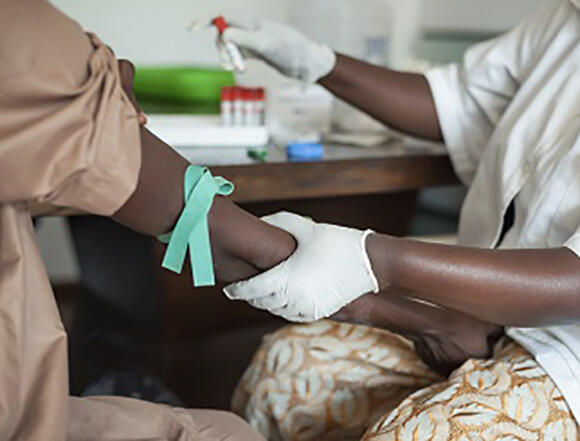
LSTM is part of a new partnership in which UNITAID is investing $23 million to accelerate access to HIV testing through simple HIV self-tests in three high-burden African countries over the next two years.
Globally, there are an estimated 19 million people who do not know they are living with HIV. Without knowledge of their status, individuals cannot access life-saving HIV care and treatment. This new partnership will lead this initiative to dramatically shift the paradigm of HIV testing in Africa.
HIV self-testing programs that are effective, efficient and ethically sound, with adequate post-test support services, may provide cost-effective solutions for expanding testing uptake. Self-testing can help reach those who are either not able to access or unlikely to use current HIV testing services due to privacy issues or lack of convenience. Additionally, it can encourage re-testing among those at high risk.
Although the US Food and Drug Administration approved an HIV self-test product for the US market in 2012, HIV self-testing remains uncommon elsewhere. More evidence is urgently needed to inform policy and programming decisions at both global and national levels, particularly for high burden countries.
With the support of UNITAID, Population Services International (PSI) and its partners, the London School of Hygiene and Tropical Medicine, the Liverpool School of Tropical Medicine, University College London and the World Health Organization, will conduct the world’s largest evaluation of HIV self-testing to date. In Malawi, Zambia, and Zimbabwe, the project team will pilot HIV self-testing models among different populations, distributing nearly 750,000 self-test kits over the 2 years of the study.
LSTM will support the project in three key areas: the development of approved national and international guidelines and instructions for accurate use; the expertise of the deputy research director and with qualitative research into user experiences to inform market planning. LSTM will also play a pivotal role in generating global momentum; organising an international symposium on HIV self-testing and in the development of research toolkits to facilitate a robust inter-country analysis.
These pilots will generate crucial information about how to create and distribute self-test products effectively, ethically and efficiently, and will answer key questions about the feasibility, acceptability and impact of this intervention. The project will use these results, and other emerging evidence, to support the establishment of appropriate policy and to encourage new manufacturers to enter the self-test market. At the end of two years, the self-test market will be poised to dramatically increase access to HIV testing and impact HIV prevention, care and treatment goals.
UNITAID uses innovative financing to increase funding for greater access to treatments and diagnostics for HIV/AIDS, malaria and TB in low-income countries and is the first global health organisation to use buy-side market leverage to make life-saving health products better and more affordable for developing countries. Based in Geneva and hosted by the World Health Organization, approximately half of UNITAID’s finances come from a levy on air tickets.